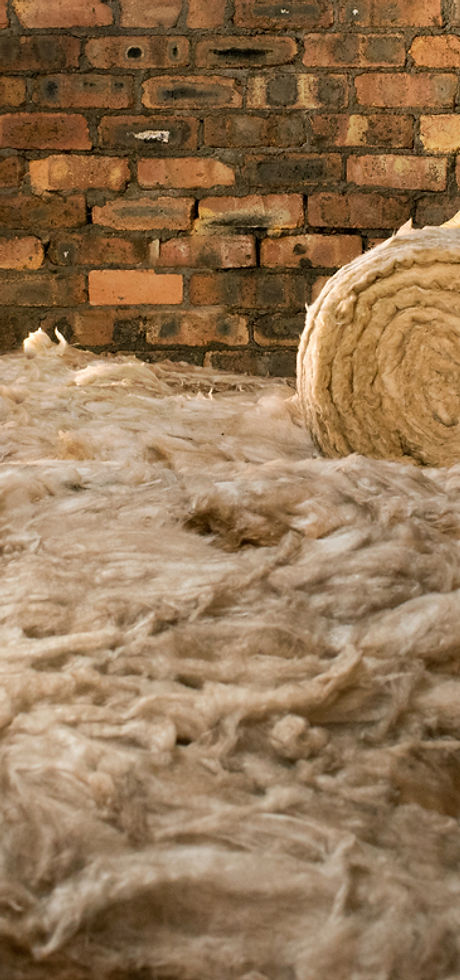Community Resources for Net Zero Homes
Green Homes Birmingham aims to build a hub of resources, case studies and contacts, helping homeowners to prepare their properties for net zero carbon emissions. By helping owner-occupiers and landlords* to understand government targets, long term trends, the priorities and options most suitable for their buildings, the costs, savings, and sources of funding available as well as listing contacts for trades, our aim is to smooth out and accelerate the decarbonisation of homes in the West Midlands in a way which maximises benefits for residents. We want to build on learning by doing and share experience to grow confidence in home retrofit and renewable heating systems, and get ahead of the curve in anticipation of higher required standards of energy efficiency, and the eventual end of sales of fossil fuel heating systems.
*while we are currently focusing on privately owned homes, we are also interested in working with housing authorities.




THE TARGETS
The UK has committed to reaching net zero greenhouse gas emissions by 2050, with a 68% reduction by 2030 (against 1990 levels). As you can see from the graph, heating our homes makes up a sizeable chunk of our footprint.
This is why the government aims to have most homes reach band C or above in their energy performance certificates (EPCs) by 2035, and are currently considering applying this requirement to all new tenancies from 2025. They also plan to end the sale of fossil fuel heating systems (e.g. gas and oil boilers) by the mid 2030s.

HOW WE GET THERE
Renewable Heating
The main change we need to make to our homes to eliminate their carbon emissions is replacing any fossil fuel heating system (gas, oil and LPG boilers) with a renewable system. The renewable system suitable for most homes and currently available is the air source heat pump. These work by extracting heat from outdoor air (even in below freezing temperatures) and using this to supply hot water to radiators, just like a boiler.
Heat pumps only use around a third as much energy as boilers or standard electric heaters, and since they use electricity from a grid which is increasingly supplied by renewable energy, their emissions are substantially lower. Once the grid becomes zero carbon, heat pumps will be zero carbon as well. The graph below shows how the carbon footprint of a gas boiler compares to that of a heat pump on today's electricity grid, as well as in future years as more of our electricity comes from renewables.
As for running costs, electricity is more expensive than gas, but the lower energy requirements make heat pump running costs similar to gas boilers, and cheaper than electric heaters. Making use of smart electricity tariffs which are cheaper at certain times of day can allow heat pumps to achieve lower running costs than gas boilers.
Heat pumps are not cheap to install - typically around £9000-11,000. Government grants and incentives can help cover much of this additional cost - the Renewable Heat Incentive will typically pay back around £6000 over 7 years. Heat pump costs should also fall as more people install them. In the long term, energy companies might offer heating as a service, where households pay monthly or by the unit of heat used, instead of fronting the installation cost, more like a mobile phone contract or financed car. Low or zero interest loans may also be made available to encourage installations.


Insulation
Building retrofit is often discussed when considering home decarbonisation. Retrofit refers mainly to improving the insulation of buildings to reduce their heating requirements, with the added benefits of improving comfort and reducing bills. Additionally, a well-insulated building requires a less powerful heat pump to keep it warm, meaning a lower installation cost.
However, a lot of homes won't need very much retrofit to be ready for a heat pump. Homes built after the 1920s tend to have cavity walls, which can be insulated for around £500, which will pay back in bill savings in about 3 years. Loft insulation and draughtproofing is cheaper still, with similarly quick paybacks. Many homes already have these insulation measures in place.
Homes built before the 1920s will tend to have solid walls, which are considerably more expensive to insulate - in the region of £10,000. In these cases some consideration is required around the trade-off between heating bills, heat pump installation costs and insulation costs. Government grants can make insulation more affordable, and added benefits of improved comfort and weather protection should be considered as well, but there may be cases where certain insulation measures just don't make sense, such as external wall cladding in conservation areas. A mid terrace might have solid walls but relatively little exterior wall area, meaning heat loss is already low enough for a heat pump to work well.
NEXT STEPS
Decarbonising your home is a daunting project. Awareness and advice is still quite sparse, and we recognise that as things stand currently, the transition to renewable heating will only really appeal to ecowarriors with a bit of spare cash (and those who don't have mains gas, where heat pumps are more economically competitive). But the direction of travel is clear: sooner or later every home will have to leave fossil fuels behind. Costs will fall, efficiency requirements on homes will becomes stricter, and eventually the polluting options will disappear.
Our aim is to create a hub of information for early adopters and pioneers to help them make the first move, then using their experience to encourage others to follow their lead more easily.
If you are at any stage of this journey, from early interest to completed ecohome, we'd really like to hear from you. Likewise, we want to hear from contractors with experience in heat pump installation and insulation retrofit , as well as those looking to develop these capabilities. Please use the contact form below to say hello, or introduce yourself on the forum!